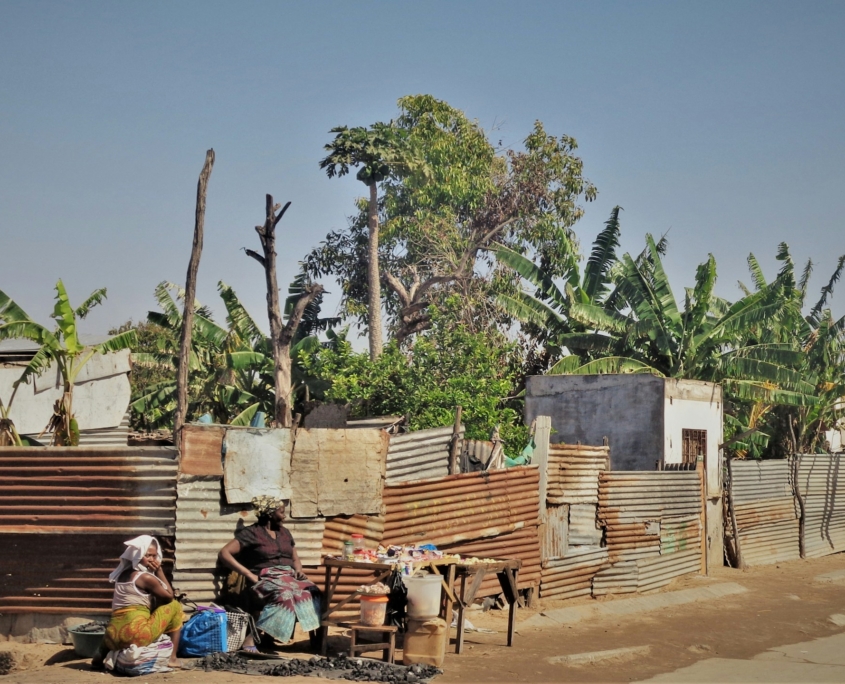 In the Northern province of Cabo Delgado, Mozambique, every day of the past seven years has been a fight for survival. Due to the recurring attacks on civilians by nonstate armed groups (NSAGs). As of January 2024, close to 800,000 people remain internally displaced in Northern Mozambique. However, two organizations stand as beacons of hope: the Red Cross and the United Nations High Commissioner for Refugees (UNHCR). With unwavering dedication, they have stepped into the fray, extending a helping hand to those in desperate need.
In the Northern province of Cabo Delgado, Mozambique, every day of the past seven years has been a fight for survival. Due to the recurring attacks on civilians by nonstate armed groups (NSAGs). As of January 2024, close to 800,000 people remain internally displaced in Northern Mozambique. However, two organizations stand as beacons of hope: the Red Cross and the United Nations High Commissioner for Refugees (UNHCR). With unwavering dedication, they have stepped into the fray, extending a helping hand to those in desperate need.
The UNHCR’s Efforts
The United Nations High Commissioner for Refugees (UNHCR) reported its concern about the escalating humanitarian crisis in Cabo Delgado in March 2024. Together with the government, the UNCHR and its partners balance the urgent needs of the newly displaced with the long-term needs of those forced to remain in overcrowded settlements.
UNHCR and its partners provide core relief items to internally displaced persons (IDPs), including blankets, sleeping mats, mosquito nets, jerrycans, buckets, solar lamps, kitchen sets and plastic sheets. It screens and registers people with specific needs for support and assistance. Furthermore, the organization reports that additional interventions are being planned and discussed with local authorities in the sectors of safety, water and sanitation, health, shelter and food security, though lack of funding thwarts the response.
The Red Cross: A Lifeline in Times of Crisis
The UNHCR focuses on broader humanitarian assistance, while the International Committee of the Red Cross (ICRC) serves as a lifeline for those directly affected by the conflict in Cabo Delgado. With a network of volunteers and staff on the ground, the ICRC, in collaboration with the Mozambique Red Cross (CVM), could provide IDPs with emergency assistance.
Emergency medical is one of the key services provided by the ICRC. From treating injuries sustained in the violence to combatting the recent cholera outbreak, ICRC medical teams provide indispensable support to a conflict-affected area like Cabo Delgado, where access to health care is often limited.
The ICRC also provides vital support in the form of food, clean water and shelter. In 2022, the organization delivered 6,000 household and shelter kits. In addition, it built 32 solar-powered hand pumps and washing areas, improving access to water and sanitation for 10,000 people.
Supporting Recovery and Reconnecting Families
The ICRC promotes self-sufficiency and as part of its emergency assistance, it distributed seed and tool kits to 25,000 people, to help them restart food production. It assists separated families and vulnerable unaccompanied children. The organization works with CVM to facilitate phone calls, reconnect, families and register unaccompanied minors.
In the face of conflict, the ICRC and the UNHCR have emerged to inspire hope in Cabo Delgado, Mozambique. Through their dedication and efforts, they have provided a lifeline to displaced families struggling to survive amid violence and insecurity. As the humanitarian crisis in Cabo Delgado continues to unfold, the work of these organizations remains essential in alleviating the suffering of those affected and rebuilding the future of the people of Northern Mozambique.
– Danielle Schaafsma
Danielle is based in South Africa and focuses on Good News for The Borgen Project.
Photo: Unsplash
